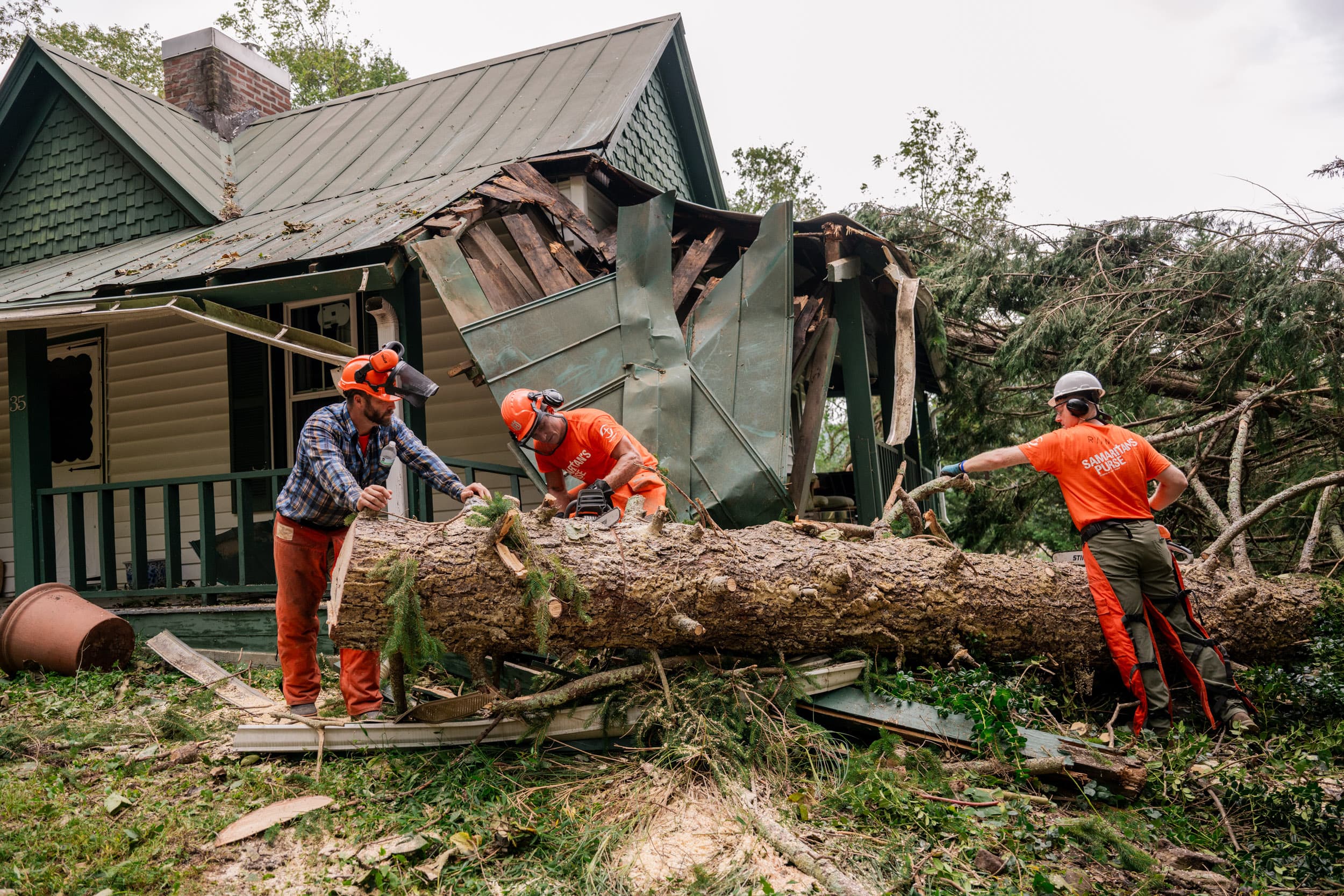North Carolina, a state often celebrated for its resilience, finds itself at the center of a monumental recovery effort following the catastrophic wrath of Hurricane Helene. The hurricane, which swept through with unprecedented force, left behind a trail of shattered homes, displaced families, and fractured communities. Yet, amidst the devastation, a story of determination, innovation, and hope emerges as North Carolinians come together to rebuild not just homes but also the spirit of their communities.

.
The Aftermath: Assessing the Damage
When the storm clouds cleared, the extent of Hurricane Helene’s impact became tragically apparent. Thousands of homes were rendered uninhabitable, with entire neighborhoods submerged under floodwaters. In rural areas, where infrastructure was already fragile, the destruction was even more pronounced, leaving families without power, clean water, or shelter.
The Federal Emergency Management Agency (FEMA) estimated that the storm caused damages exceeding $12 billion in North Carolina alone. Insurance claims have flooded in, but many homeowners find themselves underinsured or uninsured, adding another layer of complexity to the recovery process. Yet, the people of North Carolina are not defined by their losses; they are defined by their unyielding resolve.
Rebuilding with Modular Innovation
As the rebuilding effort gains momentum, innovation has become a cornerstone of North Carolina’s recovery strategy. Modular construction, a fast and cost-effective solution, has emerged as a key player in providing housing for displaced families. Factories across the state and beyond have ramped up production of modular homes designed to withstand future natural disasters. Companies like VBC Modular and Champion Homes are stepping up to deliver homes that meet stringent hurricane resistance standards, ensuring a safer future for residents.
Modular construction offers significant advantages in the aftermath of disasters like Hurricane Helene. These homes can be built in controlled factory environments, where weather conditions and other external factors don’t delay progress. Once completed, the modules are transported to the site and assembled in a matter of days, dramatically reducing the time families must wait to return to safe and secure housing. This approach also minimizes on-site waste and ensures higher quality control compared to traditional construction methods.
Additionally, modular homes can be tailored to specific needs, such as accessibility for elderly or disabled residents and energy efficiency to lower utility costs. With the ability to quickly scale up production, modular factories are poised to play a critical role in addressing the urgent housing shortages left in the wake of the hurricane.
Community organizations and nonprofits have also embraced cutting-edge solutions. Habitat for Humanity, for example, is piloting 3D-printed homes in the state, offering a glimpse into the future of affordable and sustainable housing. These innovative techniques not only accelerate the rebuilding process but also promise greater resilience against future storms.
Challenges on the Road to Recovery
Despite these advancements, the path to recovery is fraught with challenges. Labor shortages in the construction industry have slowed rebuilding efforts, with many skilled workers already stretched thin across multiple disaster-hit regions. Material costs, which spiked during the pandemic, remain volatile, further complicating the effort to rebuild affordably.

.
Moreover, navigating the bureaucratic maze of permits, insurance claims, and federal assistance has left many homeowners feeling overwhelmed. In some cases, delays in funding have forced families to live in temporary shelters for months, exacerbating the emotional toll of the disaster.
Communities Leading the Way
In the face of these obstacles, North Carolina’s communities have become beacons of hope. Local leaders, faith-based organizations, and grassroots movements have mobilized to fill the gaps left by larger institutions. In Wilmington, a coalition of volunteers has rebuilt over 200 homes, relying on donations and the sheer willpower of community members. Similarly, in rural Robeson County, a network of churches has provided food, clothing, and temporary shelter for hundreds of families.
Statewide initiatives have also gained traction. Governor Roy Cooper’s “Rebuild NC” program has prioritized the construction of resilient infrastructure, ensuring that new homes and public buildings are designed to better withstand future hurricanes. The program also focuses on equitable recovery, aiming to support low-income and marginalized communities that are often the hardest hit and the slowest to recover.
A Brighter Future
As North Carolina rebuilds, the lessons learned from Hurricane Helene are shaping a more prepared and resilient state. Investments in disaster preparedness, from improved drainage systems to community education programs, are laying the groundwork for a future where the impact of such storms can be mitigated.
While the scars of Hurricane Helene may never fully fade, the spirit of North Carolina’s people shines brighter than ever. Through innovation, determination, and an unwavering sense of community, the state is not just rebuilding homes but also redefining what it means to be resilient in the face of adversity.
A Call to Action
Rebuilding after a disaster of this magnitude requires collective effort. Whether it’s donating to relief organizations, volunteering time and skills, or simply spreading awareness, every contribution makes a difference. North Carolina’s story is a reminder that in the wake of devastation, there is always room for hope and progress.
Together, we can ensure that North Carolina not only recovers but emerges stronger, ready to face whatever challenges the future may bring.
Gary Fleisher, The Modcoach, writes about the modular and offsite construction industry at Modular Home Source.
.
CLICK HERE to read the latest edition
Contact Gary Fleisher












